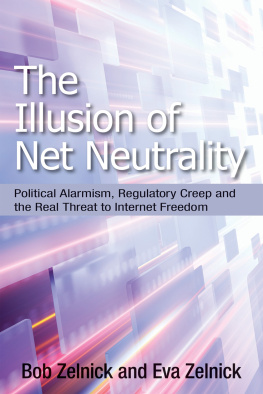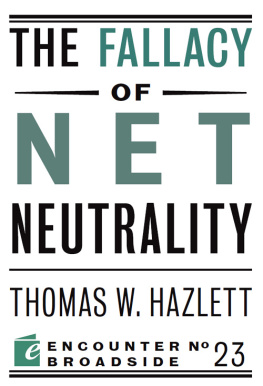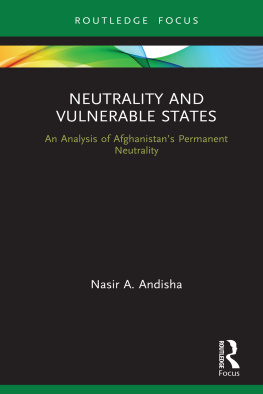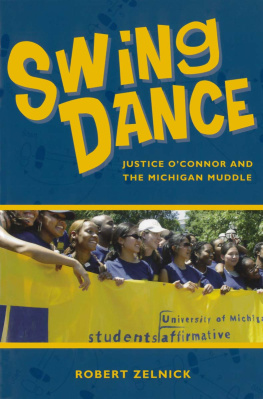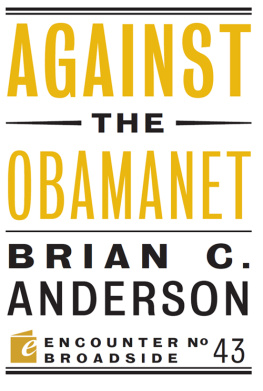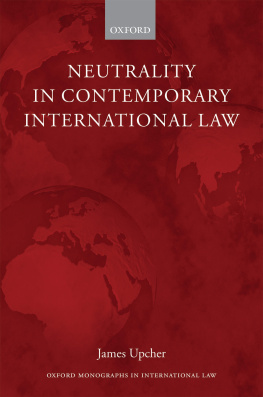

The Hoover Institution on War, Revolution and Peace, founded at Stanford University in 1919 by Herbert Hoover, who went on to become the thirty-first president of the United States, is an interdisciplinary research center for advanced study on domestic and international affairs. The views expressed in its publications are entirely those of the authors and do not necessarily reflect the views of the staff, officers, or Board of Overseers of the Hoover Institution.
www.hoover.org
Hoover Institution Press Publication No. 633
Hoover Institution at Leland Stanford Junior University, Stanford, California, 94305-6010
Copyright 2013 by the Board of Trustees of the Leland Stanford Junior University
All rights reserved. No part of this publication may be reproduced, stored in a retrieval system, or transmitted in any form or by any means, electronic, mechanical, photocopying, recording, or otherwise, without written permission of the publisher and copyright holders.
For permission to reuse material from The Illusion of Net Neutrality: Political Alarmism, Regulatory Creep, and the Real Threat to Internet Freedom, ISBN 978-0-8179-1594-0, please access www.copyright.com or contact the Copyright Clearance Center, Inc. (CCC), 222 Rosewood Drive, Danvers, MA 01923, 978-750-8400. CCC is a not-for-profit organization that provides licenses and registration for a variety of uses.
Hoover Institution Press assumes no responsibility for the persistence or accuracy of URLs for external or third-party Internet websites referred to in this publication, and does not guarantee that any content on such websites is, or will remain, accurate or appropriate.
Library of Congress Cataloging-in-Publication Data
Zelnick, Robert, 1940 author.
The illusion of net neutrality : political alarmism, regulatory creep, and the real threat to Internet freedom / Bob Zelnick and Eva Zelnick.
pages cm. (Hoover Institution Press publication ; no. 633)
ISBN 978-0-8179-1594-0 (cloth : alk. paper)
ISBN 978-0-8179-1596-4 (e-book)
1. Network neutralityUnited States. 2. InternetGovernment policyUnited States. 3. Internet service providersGovernment policyUnited States. 4. United States. Federal Communications Commission. I. Eva, Zelnick, author. II. Title. III. Series: Hoover Institution Press publication ; 633.
HE7583.U6Z45 2013
384.33dc23 2012045816
CONTENTS
PREFACE
THE INTERNET IS ARGUABLY the most important technological development of all time. It has grown from a small, government-funded project to an international network of networks and a mainstay in our social, political, economic, and academic lives. And we are only beginning to recognize its potential. It is perhaps not surprising, then, that there is a battle being waged for control of the Net. Under the rubric of network neutrality, a cacophony of purportedly likeminded interest groups, individuals, scholars, and government officials have fought to bring Internet governance under the regulatory auspices of the Federal Communications Commission (FCC). As enthusiastically as we look to the future of the Internet, we are disheartened about the way that many in the field ignore the lessons of history; instead, they appear willing to turn the Net into a political grab bag on behalf of those with scant confidence in the sort of free enterprise that has gotten the Internet off to its unprecedented start. The Internet has proven it needs no government ownership or control, no special bureaucratic vigilance, and no policy that would replicate the suffocating FCC attention directed toward radio, television, phone, and cable operations. Instead the industry has thrived, and will continue to thrive, when left to the free play of market forces and subject only to antitrust enforcementthe body of law well-suited to preventing anticompetitive behavior without the stultifying oversight that brought us the Fairness Doctrine, equal-time requirements, and Rube Goldberg bureaucratic concoctions.
We hope that this book contributes to the formation of sound and enduring policies that assist the Internet in living up to its full potential. We recognize that the opposition, which includes some smart and well-motivated people, has come forward with a master plan for government control. We only wish they devoted their skills more toward helping this new technology achieve everything it appears capable of, rather than squeezing it to the point of suffocation, like a rock star whose fans love him to death.
ACKNOWLEDGMENTS
TRYING TO UNDERSTAND THE INTERNET , to appreciate its potential, and to draw the line against those who would deprive it of the competitive oxygen needed to perform at its best has been a daunting but rewarding task. I was delighted to receive the generous backing of John Raisian, director of the Hoover Institution at Stanford University. This project would not have been possible without his generous support. My gratitude also goes to Richard Sousa, Hoovers deputy director. I have worked with Richard on several previous projects and have found his judgment sound, his enthusiasm genuine, and his confidence in my work reinforcing. Richard is truly a scholars scholar, and I look forward to our continued professional association.
It is with particular pleasure that I recognize and applaud the efforts of my eldest daughter, Eva Michal Zelnick, who chose this moment to work professionally with her dad. Eva is a cum laude graduate of both the University of Virginia and Boston University School of Law, who has specialized in public policy issues linked to the Internet. This book could not have been written without her participation, and I look forward to working closely with her again.
I also take this opportunity to acknowledge the strong and constant across-the-board editorial assistance provided by Kimberly Wexler. Kimberly served as our primary research assistant since we began this project, and her work was impeccable. Kimberly was a fine student of mine at Boston University, and has since matriculated to the University of Pennsylvania Law School, where she has developed an interest and expertise in communications law. I predict great things for Kimberly in the future, and only hope she will allow me to continue to work with her.
I also thank James Wellington Wiley III, likewise at the University of Pennsylvania Law School, who lent us his expertise on telecommunications and spectrum reform in the United States.
Additionally, Alexander Shoulson, at the University of Pennsylvania Law School, provided the important diagrams in Chapter 3, and assisted with technical edits for the book.
And a thank you goes to Erin Blake, a student at Georgetown Law School, for her research assistance as we began this project, and to Robert Michael Engel, a student at Suffolk University Law School, for his research and editorial help.
And none of this would have been possible, of course, without the love and support of our family: Pamela Zelnick, my wife of forty-three years, was always there when needed, which was often. My youngest daughter, Marni, who has worked with me on other projects, offered as much help as she could spare, given that she was working during this period on her first feature film. And Dara, my middle daughter, was in the process of making partner at her Boston law firm, but still had time to offer sound editorial guidance.

